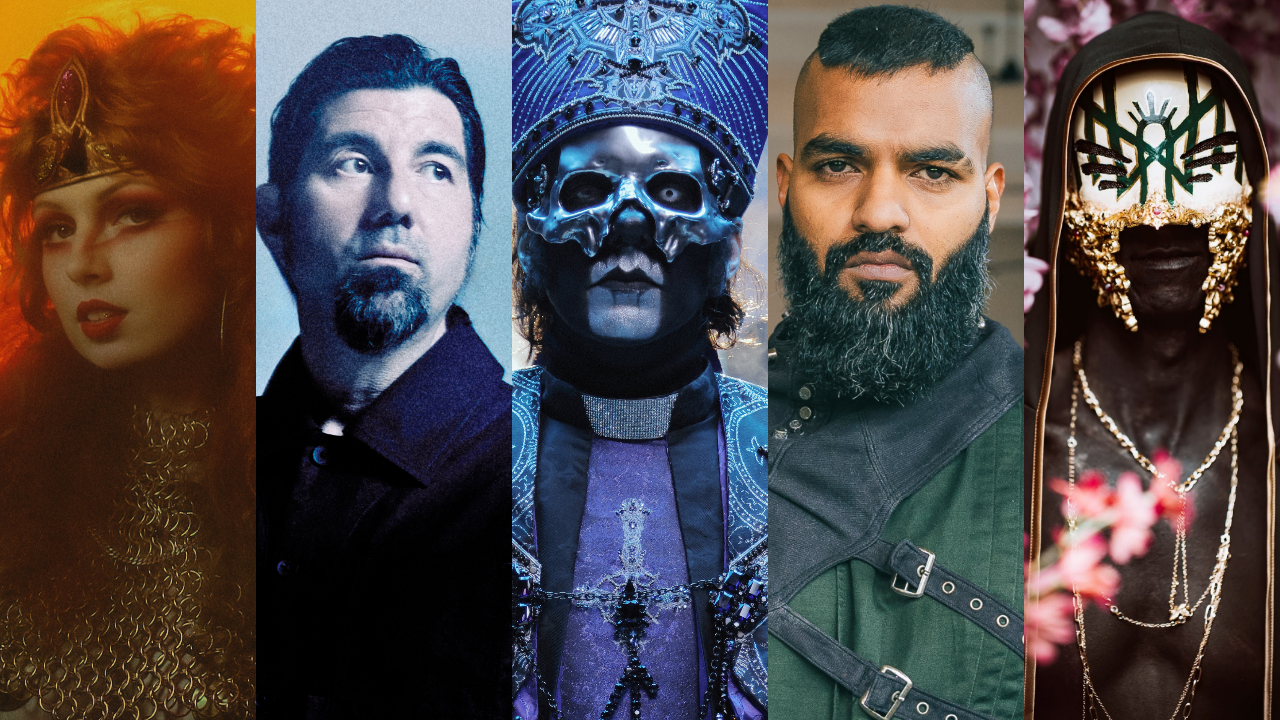We need to talk about the response to the Marilyn Manson abuse allegations
When abuse allegations against Marilyn Manson broke earlier this week, it sparked a dangerous narrative around abuse and its victims – here, experts address key doubts and questions head-on
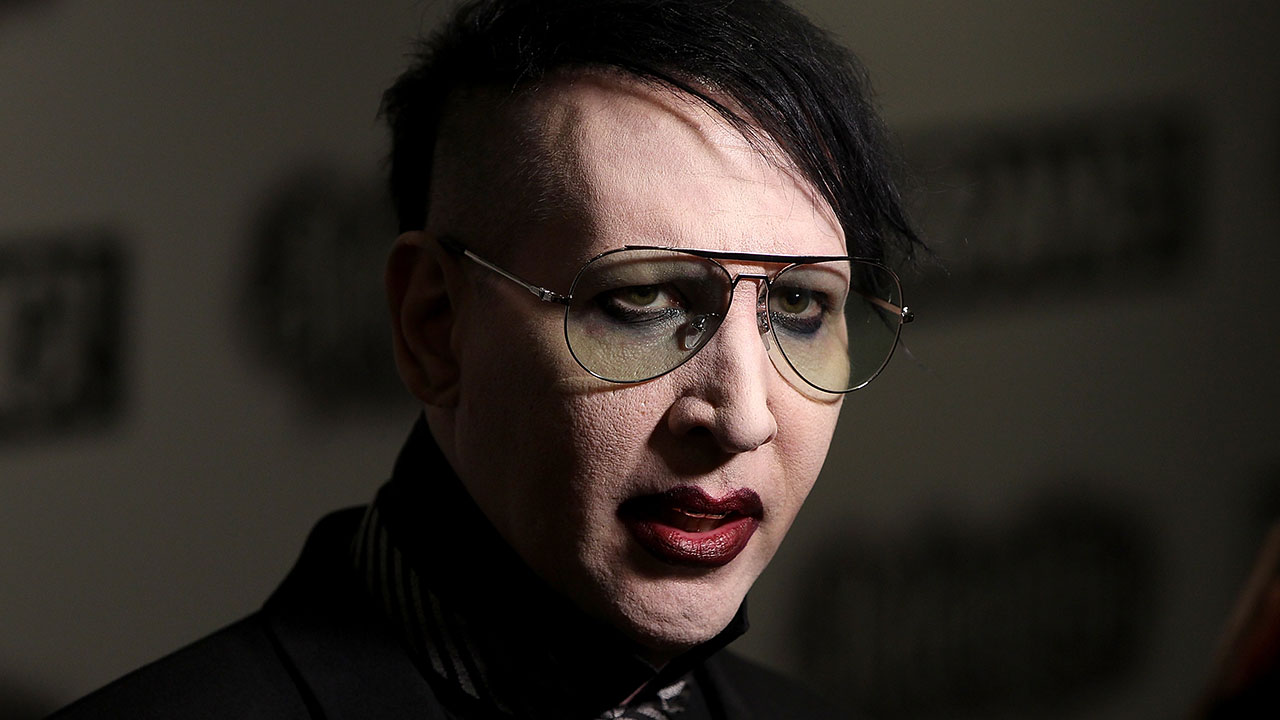
Content warning: this article includes discussion of domestic violence, abuse and sexual assault
On Monday, February 1, 2021, actor Evan Rachel Wood broke years of silence and publicly accused her former partner Brian Warner – AKA Marilyn Manson – of abusing her during their relationship in the late 00s. Almost immediately, several other women shared their own experiences of abuse at the hands of the singer, while Wood’s original Instagram post prompted a wave of support and solidarity from the likes of Warner's ex-fiancé Rose McGowan and Limp Bizkit guitarist Wes Borland.
But there was a flipside to all this. Wood’s post sparked off an altogether different narrative that ranged from the misinformed to the outright misogynistic. When Metal Hammer posted the story to our social media channels, responses included suspicion over the veracity of the statements, victim-blaming and a worrying amount of "laugh" reacts, while others pointed to the fact that Manson denied the allegations in a statement.
Not all of these reactions are necessarily misogynistic or malicious, of course, but they do show a massive misunderstanding of the mechanics of abuse. We could spend hours trying to convince people why a response such as "women lie 8/10 times" is incorrect, disingenuous and dangerous, but let’s be honest: these kind of online arguments rarely change anything.
Instead, we’ve decided take each of the key doubts and questions some people have had and get an expert to address them head-on. Warner isn’t the first musician to be accused of abuse, and sadly, he won’t be the last. Which makes tackling the questions surrounding abuse, domestic violence and rape more important than ever.

1. If it was that bad, why did she stick around for so long?
When a woman publicly speaks up about domestic violence, many ask 'Why didn’t she just leave?'
It’s easy when you have your strength, self-esteem and support system intact to think that if someone raised a hand to you you’d pack and walk out the door, but this belief ignores the complexities of abuse. Abuse is more than violence: it’s an intricate, considered pattern of manipulation that breaks down the self-worth and independence of victims.
Sign up below to get the latest from Metal Hammer, plus exclusive special offers, direct to your inbox!
According to the National Domestic Violence Hotline, a woman will leave an abusive partner an average of seven times before she leaves for good. That’s if she survives to leave at all. An article on the NDVH website lists 50 of the obstacles women face in leaving – among them denial, financial difficulties, fear of retaliation, guilt, hope for the victim to change and a lack of support.
Sharon Bryan is a survivor of serious domestic abuse who is now an expert on the subject working with the National Centre for Domestic Violence. She told us that, on average, women will experience 50 incidents of abuse before seeking help, and that those living in medium to high-risk abusive relationships will stay on average for between two-three years on average. Four years isn't unusual – it's not even particularly long. “I have worked with hundreds of women that have lived in extremely physically and emotionally abusive relationships for 18 years and over before having the strength to leave,” she says. "The threat to women remains very real. Isolation, shame, guilt, embarrassment and denial – these are all very common reasons why women stay in abusive relationships for so long.”
Violence against women consultant Julie Owens adds: "Abusers don't have relationships. They take hostages. It's not about love. For them it's about possessiveness, power and control. Victims do leave. They are leaving. They have left. They will leave again. But it's the most dangerous thing a victim can do."
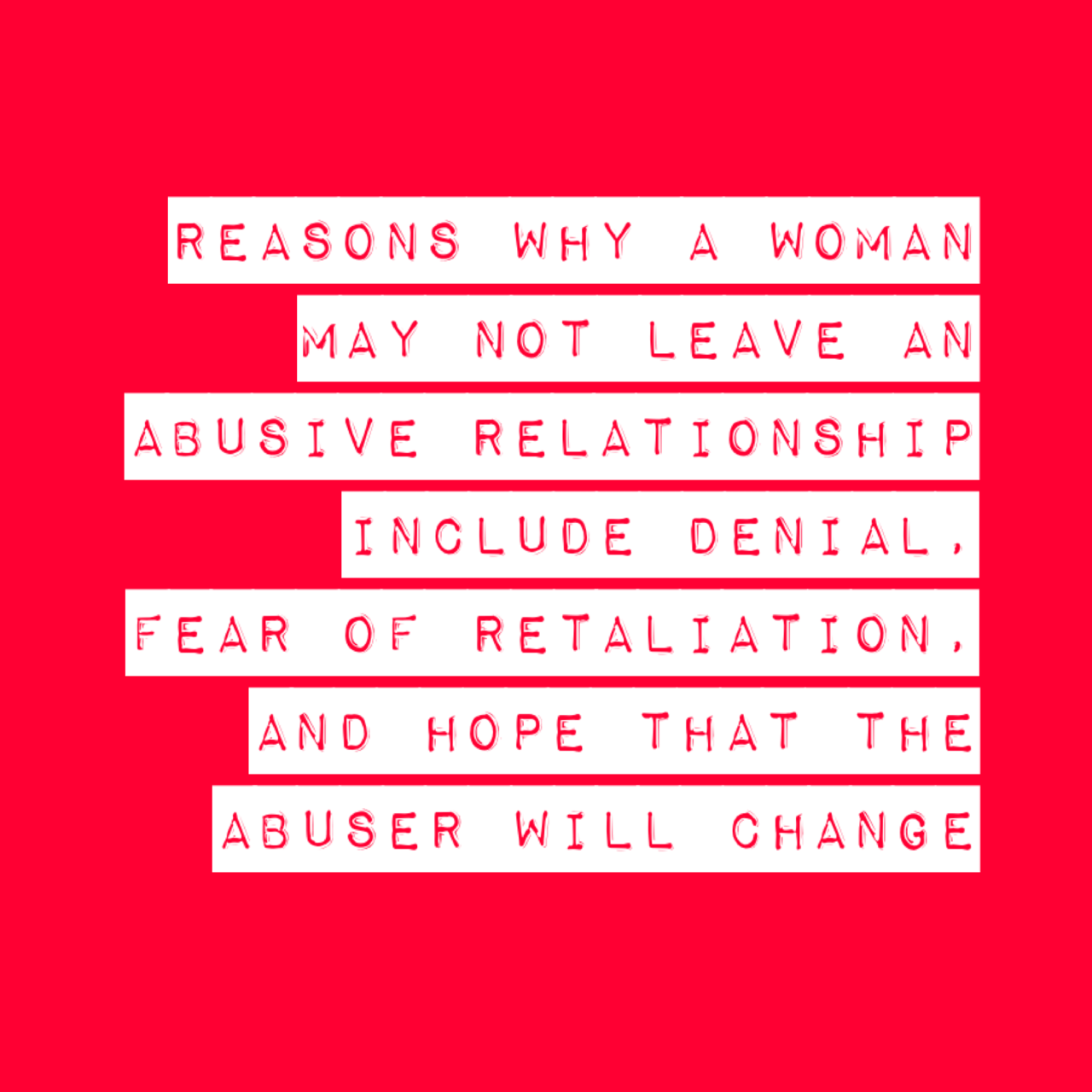
2. So why is all this only coming out now, over a decade later?
Abuse and trauma are incredibly complex, and if you’re interested in learning a little more, books on the topic are a great introduction. The Body Keeps The Score is a great, in-depth exploration of the effect of trauma on the mind and body, and the ways our mind encourages denial as a coping mechanism while we are still living in or healing from traumatic experiences. Confronting what has happened to us requires a great deal of safety, and it often takes years, or even decades, for survivors to build the necessary strength.
Bryan says the reasons for not disclosing sooner are similar to the reasons why it takes someone so long to leave: “Fear of not being believed. Of the perpetrators carrying out his threats. It may take years for the survivor to feel ‘safe enough’ to disclose the abuse.
"A lot of women do not want to see their abuser punished,” she adds, explaining that the love they once felt complicates their feelings. “The question to ask is, ‘why does he not stop?’“
The ability of the authorities to deal with such cases can also pose a risk when it comes to reporting. “There is so much misunderstanding around domestic abuse that prevents professionals knowing how best to support women who disclose. This in turn often means that women do not have the right support in place for them.”
Additionally, realising what “counts” as abuse takes real knowledge and courage. “Many women who have been raped or coercively controlled, may not see this as abuse," says Bryan. "The abuse can be very difficult to prove once time has passed. It is his word against hers, and she may never have reported the abuse to anyone. If it was coercive control there are no bruises, no evidence. If she were raped, there will be no forensic evidence after time has passed.
"All of these reasons prevent women from disclosing. They may only feel they need to disclose years later, if they discover that the abuser is abusing others."
If the alleged perpetrator is in the public eye, as in this case, that makes things more complicated. “All the above reasons are then further compounded by feelings of guilt and shame,” says Bryan, adding that the fear of the most intimate parts of your life becoming public property and open for debate also delays allegations coming out.
There is also the fear, she adds, of the inevitable backlash from the abuser’s fans and supporters – the tidal wave of comments calling the survivor a liar. Sound familiar?
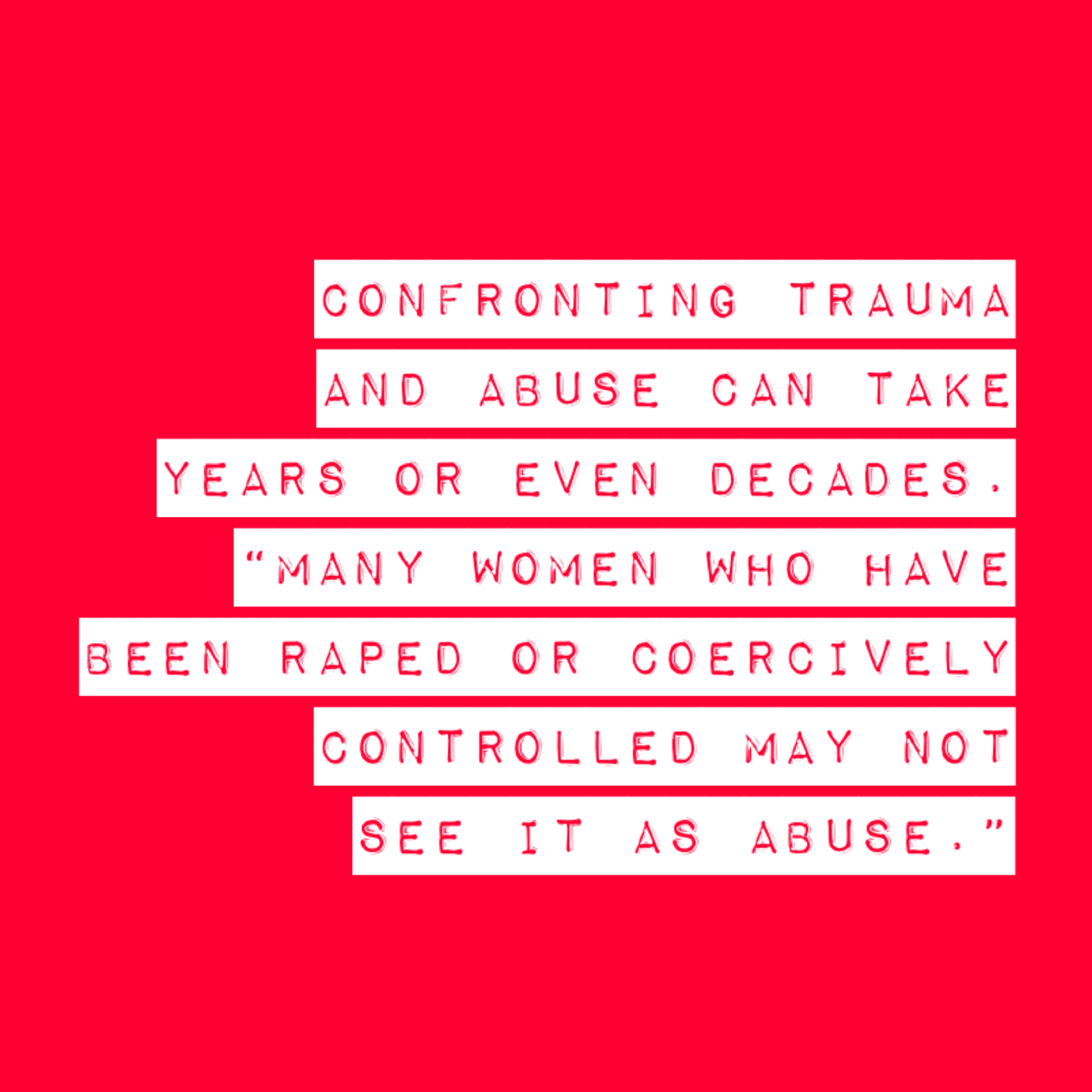
3. Why is this playing out on social media rather than in the courts?
In the wake of MeToo, detractors often ask why, if it’s so serious, the accuser is taking their case to social media rather than to the police. There are a few answers to this. Firstly, we don’t know whether something has been taken to the police or not. People talking about it on social media doesn't mean it hasn't – in this specific case, a letter from California Senator Susan Rubio posted on Wood’s Instagram indicates that the FBI has formally been made aware of the accusations.
Secondly, rape convictions are notoriously low – in fact, in the UK, they recently fell to the lowest they’ve ever been, with prosecutions and convictions having more than halved in three years while the number of rapes increased.
Rape and abuse, particularly between intimate partners, is difficult to prove. The realities of going to the police, even if you have sufficient evidence, are often traumatic and dehumanising. Going from being assaulted to being poked at further, asked questions, sometimes treated with suspicion, having your dignity taken away – all when you just want to heal? Having to talk about it for months to come, perhaps even facing your abuser again? Many women in the wake of abuse simply are not strong enough.
Particularly in cases where an alleged perpetrator has a platform, taking it public is the best route to find some justice or stop them from hurting anyone else. Bryan contacted former clients of hers to ask why they chose to go that route. The consensus was that, on social media, women can decide how much they want to disclose. They may have more support from friends or other survivors than in the courts. One client said: "If the system were more supportive towards women, then maybe we wouldn’t feel the need to use social media to tell our stories.”
According to Bryan, during 2020, the NCDV received 96,000 referrals from the police and domestic support agencies. Of these 96,000 referrals, almost 10,000 victims of domestic abuse were able to secure non-molestation orders through the civil courts. Of this 10,000, 4,100 of these victims were not entitled to legal aid and could not afford a solicitor to represent them and would have been left unprotected, had it not been for NCDV.
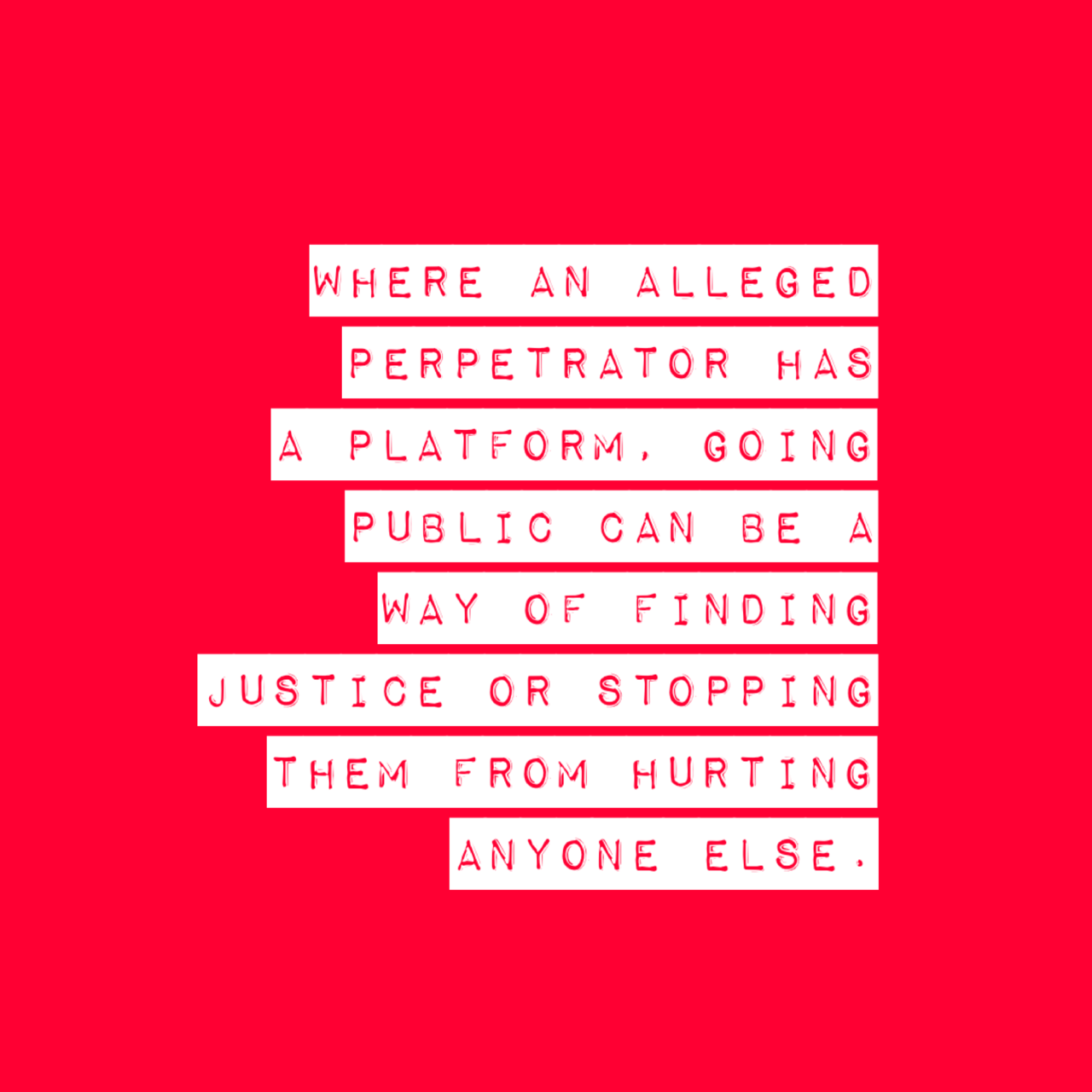
4. It was just a BDSM relationship
In Warner’s statement, he asserted that “these recent claims about me are horrible distortions of reality. My intimate relationships have always been entirely consensual with like-minded partners.”
Firstly, let's cover what BDSM actually is: an area of sex that involves bondage and discipline, domination and submission, sadism and masochism. Many of your comments echoed the idea that this is all just part and parcel of what someone can expect in a BDSM relationship. BDSM, in the eyes of some, is indistinguishable from abuse. This is fundamentally untrue, but it is an untruth that has also been used recently in the case of the allegations against American actor Armie Hammer: detractors argue that women who engage in BDSM know what they’re getting into.
This is dangerous. All sex is subject to the same rigorous standards of consent: that it should be freely given and can be revoked. BDSM communities, in fact, place an explicitly high value on consent, and communication and safe words are a pillar of BDSM activity. Choosing to engage in kink does not make you fair game for abuse.
Lola Jean, a sex educator and BDSM expert, has written and contributed to several articles discussing this exact topic: Consent is Not the New Game and The Boundary Between Abuse and BDSM are great places to start. “BDSM is not inherently abusive, but anything can become abusive in the wrong hands, and BDSM is unfortunately a commonly misused weapon," says Jean. "BDSM is a tool and we can use that tool for good or for bad. BDSM done improperly and without informed consent can turn abusive. Consent is more than permission. It is freely given, revocable and informed. That means all parties involved are aware and also in a position where they feel empowered to advocate for themselves.”
Jean adds that, in a genuine BDSM relationship, partners will listen to each other about how they felt about or experienced something. “If someone exits an experience negatively, the other person ideally will validate that and create space for the inflicted person to vocalise this,” she says, adding that boundaries are imperative. “The ability and space to advocate for yourself is so important. Individuals only concerned with boundaries [on the surface] of an experience are not concerned with boundaries, they’re concerned more with their reputation.”
She adds that it’s important to remember, too, that it is not always easy to say no: “Especially when someone has put you in a situation where it feels difficult to. Especially in a situation with an unrecognised power dynamic.”
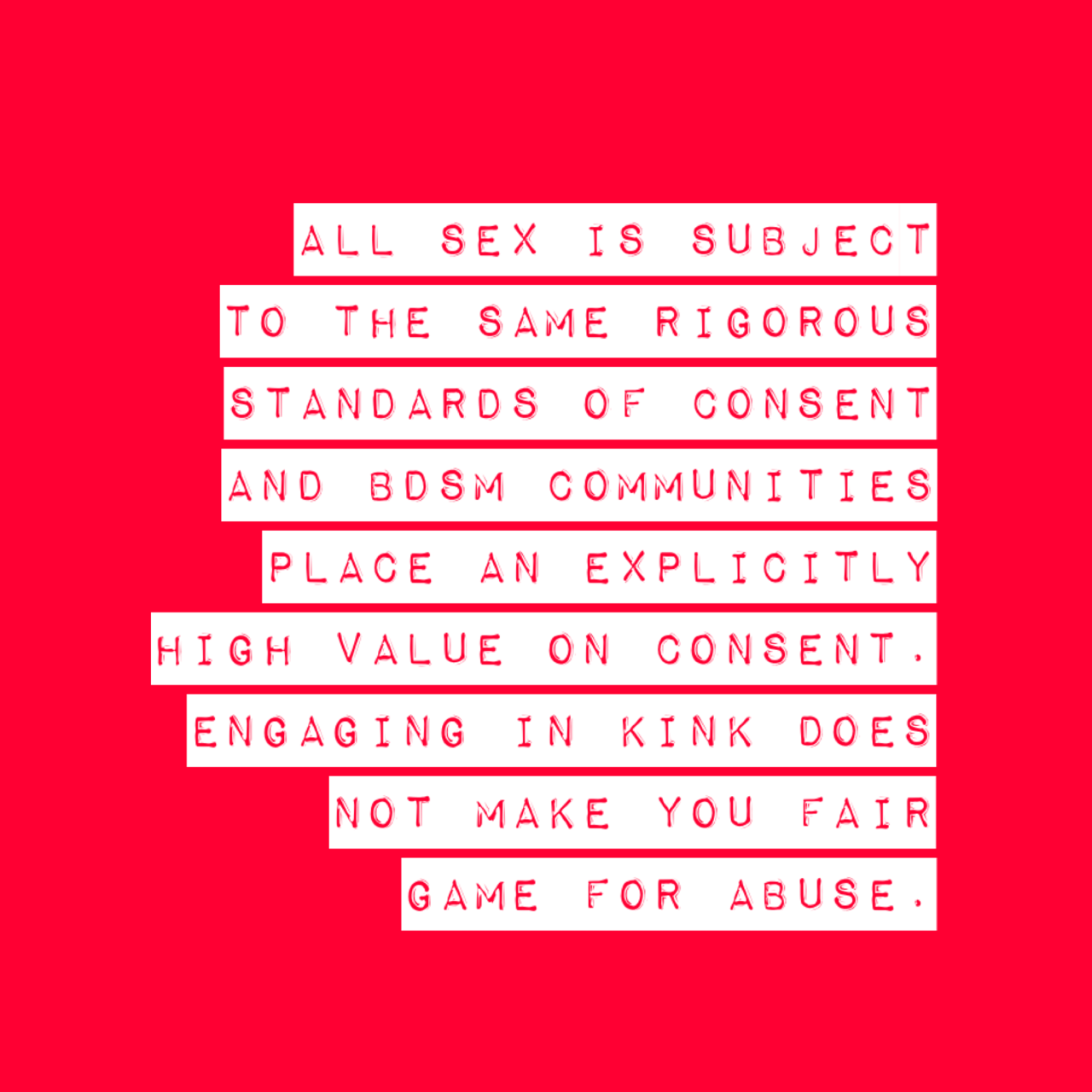
5. They're doing it for fame/money/clout
It is hard to imagine that someone responding to abuse allegations like this is really acting in good faith. Name one woman who got famous or rich from making accusations? Name someone in the Weinstein case who wasn’t famous before but now is? R Kelly? Bill Cosby? There are, to our knowledge, zero examples of previously anonymous women who are now rich, famous and swimming in clout for naming their abuser. The reality is often just more trauma for the accuser. They lose work, they get hounded on Twitter, they get doxxed, and they have to face accusations that they only opened up about their trauma for non-existent “clout”.
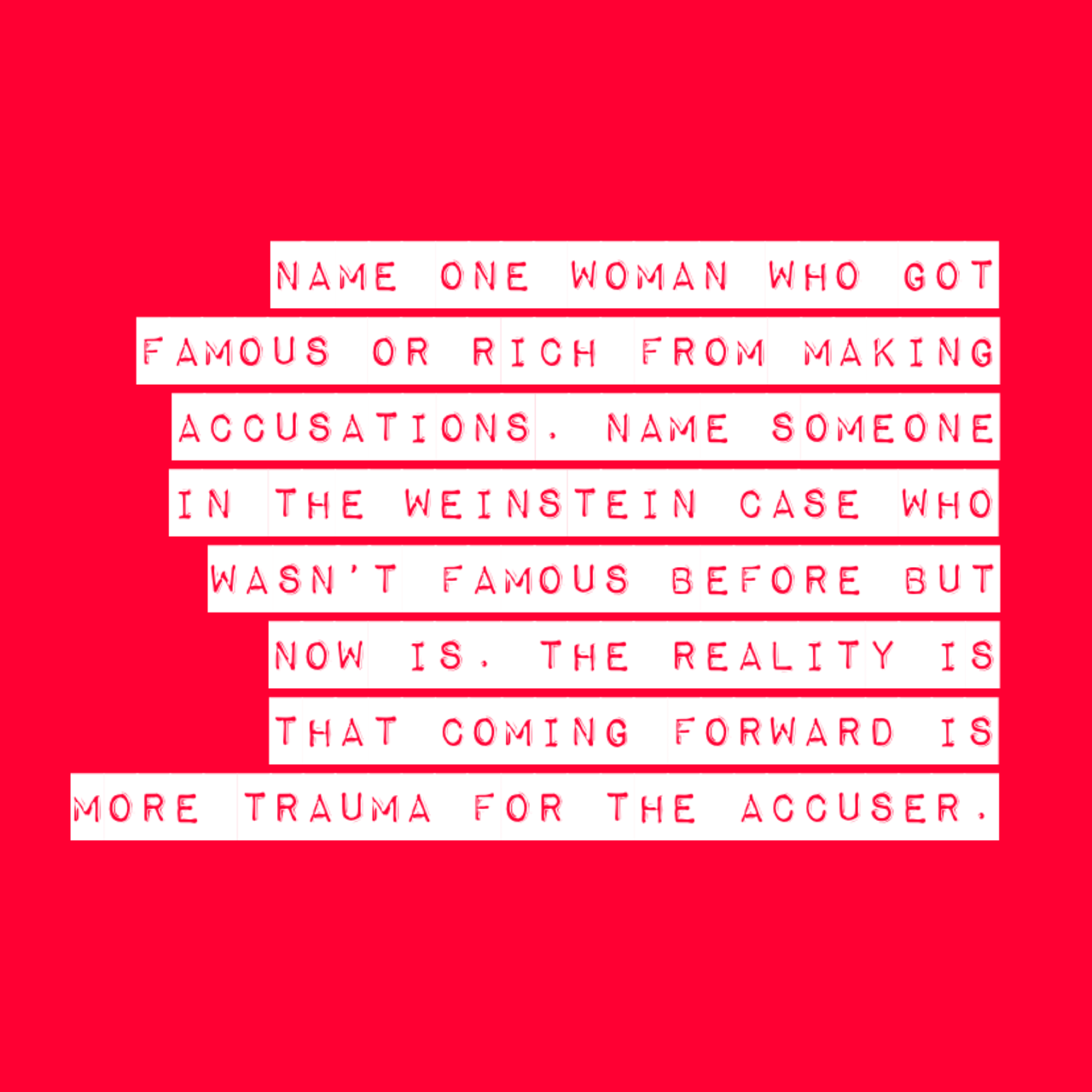
6. What about the thousands of men who have their lives ruined by false accusations?
Plenty of comments made reference to the fact that "tens of thousands of men get their lives ruined by false allegations every year". None of them were backed up with any actual examples.
In the music world specifically, we can think of one – just one – false allegation that has affected someone’s life. Bright Eyes singer Conor Oberst was accused of assault by a fan who later admitted she had made it all up. But despite the negative impact on his life, Oberst was desperate not to become an anti-feminist posterboy.
“It's such a tricky topic for me because I don't ever want to minimise how much that happens to women all the fucking time," he said in a 2017 interview. "They say one in four women will experience some kind of sexual assault in their life which is fucking insane and heartbreaking. So as painful and surreal and fucked up as my situation was, I don't ever want to use this as an example to justify anything."
Also, for what it's worth, Oberst is still recording music with Bright Eyes and a number of other projects. Ask him if his life has been destroyed by false allegations and it's unlikely he'd agree.
Bryan adds that, even outside of the music industry, the evidence simply does not back up the idea of false allegations being endemic or even common. Research for The Home Office suggests that just 4% of reports of sexual violence are thought to be false. Of these, how many actually are is unprovable.
The incentive for women to lie in this scenario is minimal because coming forward with allegations puts so much at stake: “Potential impact on their family lives, their careers, their reputation and the impact on any children they may have," says Bryan. "In some cases, the loss of their homes – many women flee their homes and go into refuge, not knowing when they may have somewhere else to live.
"For women who have been placed in these situations, to suggest they have made false allegations is, quite frankly, insulting at best, and are the very reason why women do not report abuse.”
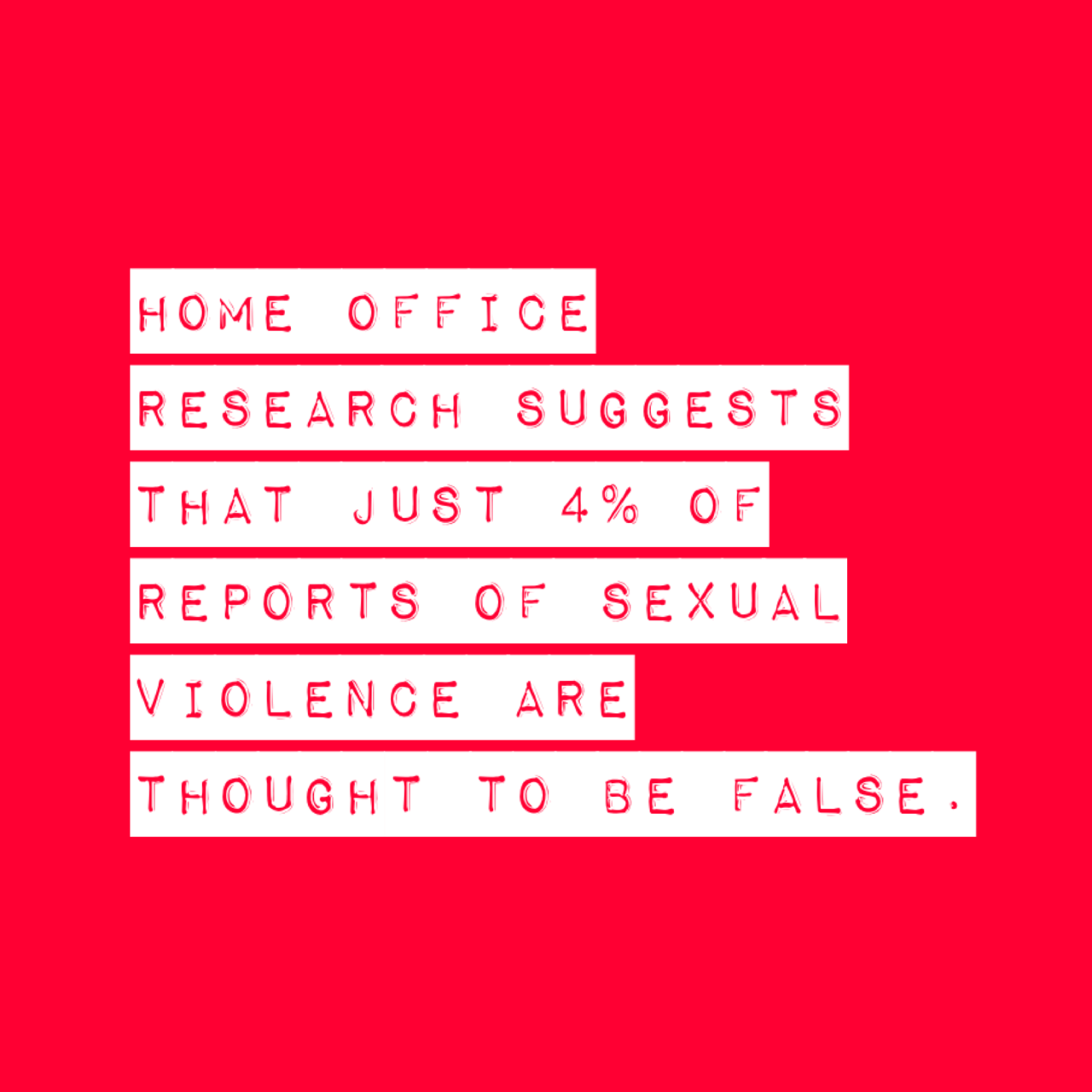
7. They're dating Marilyn Manson, what did they expect?
No matter how many songs someone has made, how much makeup they wear or how “shocking” their public persona, nobody has free reign to treat other human beings however they like. There is no excuse for abuse and no real evidence to back up conflating Satanism, or a stage persona, or BDSM, or goth outfits with abusive relationships.
People entering into a relationship should be able to expect love and respect. That they do that doesn't indicate any weakness on their part. Nobody, no matter who they date or how they live their life, is ever putting themselves in a position to be abused. The only person responsible is the abuser.

If you've been affected by any of the issues raised in this article, you can contact the 24-hour National Domestic Abuse Helpline for free by calling 0808 2000 247 (UK). If you aren't able talk on the phone, you can also start a live chat or message them directly, both via their website.
For anonymous, confidential help in the US, you can call the National Domestic Violence Hotline at 1-800-799-7233 (SAFE) or 1-800-787-3224 (TTY).
Marianne Eloise is a contributing writer to Louder where she has interviewed everyone from Pete Wentz to Taylor Momsen. With over a decade of experience in both online and print journalism, she writes about music, disability and culture for The Cut, the Guardian, the New York Times and more. She is also the author of the essay collection Obsessive, Intrusive Magical Thinking and creator of the Emo Diary fanzine series.

